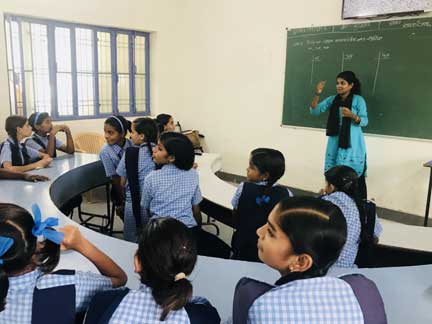Hindustan Zinc organized workshops on ‘Menstrual Hygiene & Sexual Violence’ for deaf girl students
Udaipur: Hindustan Zinc under Jeevan Tarang program organized three workshops on ‘Menstrual Hygiene & Sexual Violence’ for deaf girl students from 5th to 12th class at Viklang Kalyan Samiti – Udaipur, Badhir Baal Kalyan Vikas Samiti – Bhilwara and Badhit Baal Vikas Samiti – Ajmer, in Rajasthan.
The faculty of the workshops was Ms. Jisha Sibbu – a deaf trainer from Noida Deaf Society. The workshop was filled with discussions pertaining to orienting the girls on good menstrual hygienic practices and also sensitize them on various complications arising due to lack of hygiene during their menstrual cycles.
Apart from hygiene, the workshop also focussed on the opposing and preventing Sexual Violence. It was first of its kind Workshop in these three cities. As Jisha communicated with the girls in Indian Sign Language, all the girls became excited and happy to be communicated in their mother tongue. Total of 56 teen girls along with 12 teachers participated in the workshop.
Mr. Pavan Kaushik – Head, Corporate Communication said “There is a need to understand and up-bring these children with all love and care. Jeevan Tarang is an initiative to work towards a more inclusive society, where every single ability & disability gets the same opportunities and recognition. Hindustan Zinc has partnered with experts to build capacities of these institutions and also engaging industry representatives to ensure good job opportunities for them.”
Fact says that over 12 million people in India are hearing impaired. Even the teachers working in these schools are not equipped or trained to teach the hearing impaired students as Sign Language is still not accepted as a medium of teaching and communication. Lack of access to language has also kept the deaf away from development of social and cognitive skills.
Jeevan Tarang is an initiative of the company, to cater to people with disabilities, with a focus to identify needs of deaf-mute, visually impaired and children with brain damages, by improving the facilities and learning in identified schools catering to the differently abled children. This program has so far impacted more than 600 children.

